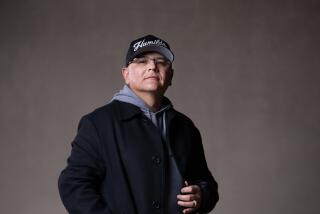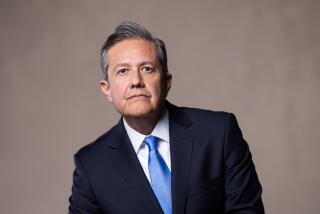Efficiency, Generosity Are Part of the Empire
- Share via
MEXICO CITY
In a nation known for corporate waste and avarice, billionaire Carlos Slim Helu operates both efficiently and generously--a sort of Mexican mix of Sam Walton and Andrew Carnegie.
He doesn’t use consultants or headhunters to bring in talent, preferring instead to deploy members of his own team. Like Slim, they win no elegance contests. But they are tough, instinctive traders.
“The majority of our team is home-grown,” Slim says. “When a professional, however brilliant he may be, goes from company to company, he is a mercenary. Those are people without roots.”
Many of his top executives joined Slim at a young age. The vice chairman of the Inbursa financial group and head of its stock brokerage, Eduardo Valdez, 35, began at 21. And Jose Formoso, now 40, joined Slim’s umbrella company, Grupo Carso, at 20, held positions in the industrial and cable TV arms, and now is developing the Central American market for Telefonos de Mexico, of which Slim holds a controlling stake.
The culture is built on internal loyalties and what Slim calls “encouragement from bosses and colleagues who know their work and can offer deep recognition of what one is doing well. These are quiet stimulations, not that of looking for the spotlight and public acknowledgment.”
During an afternoon-long interview, one daunting aspect of Slim’s management style was clear. He phoned half a dozen of his top executives and grilled them on details of specific operations, often challenging their off-the-cuff financial estimates.
“It stimulates them to know that you are following their work,” Slim says.
His three sons reflect his philosophies and operating style. They, like their father, who earned a civil engineering degree from the Autonomous National University of Mexico, all were educated in Mexico, unlike the children of many scions who receive U.S. degrees.
Along with his brothers, Marco Antonio Slim worked his way up through several lower positions. He now heads the Inbursa financial group. He echoes his father’s determination not to let companies get fat in the good times.
“We always seek to work as close to the bone as possible,” Marco Antonio said in an interview, “and to behave as if money were scarce. It contaminates the whole company if there’s waste above.”
More than most Mexican corporate leaders, Slim has generated broad-based corporate responsibility programs. And they are run on equally strict principles.
“I don’t understand those people who want to set up a foundation that operates after they are dead, to be run by people they didn’t know,” Slim said.
Slim’s largest unit, Telmex, spends about $15 million a year on scholarships for needy Mexicans. And for a decade, Grupo Carso has paid bail for first-time young offenders accused of nonviolent crimes, helping about 5,000 youths leave jail last year. In Mexico, such suspects can remain behind bars for months or years before coming to trial.
In his foundation, as in his businesses, Slim keeps administrative costs low. He runs a program called Surgery Without Walls that covers travel and material costs for doctors who volunteer their time to perform free operations for the poor in mobile clinics.
“You change the lives of the family completely, and this means 10,000 families in the poorest villages,” he said. “And each operation costs us just $80 to $120.”
“The truth is, you leave this world with nothing,” Slim said. “What you are is a temporary administrator, and you must administer well--you have a responsibility to administer well the wealth in your care, and generate more. The surplus can be used to do many things for people.”
More to Read
Inside the business of entertainment
The Wide Shot brings you news, analysis and insights on everything from streaming wars to production — and what it all means for the future.
You may occasionally receive promotional content from the Los Angeles Times.










